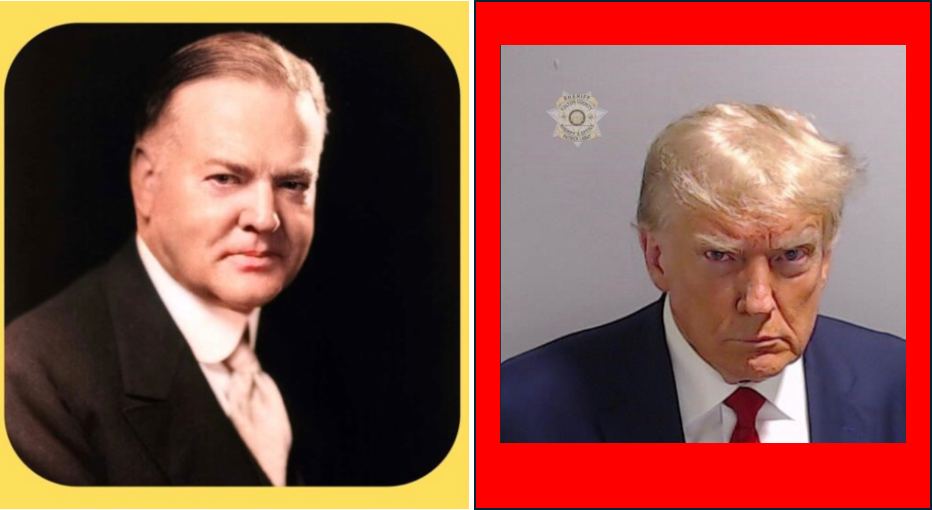Take a breath.
I know, I know. It’s bad. It sucks, and it’s going to get worse before it gets better.
But amid the hand-wringing, the-sky-is-falling, doom-scrolling despair, don’t panic, just take…a…breath.
Take the time to understand what’s happening and why. Learn the lessons of history because, as someone said: “History doesn’t repeat, but it rhymes.” Recall the words of Gottfried Leibniz: “The present is saturated with the past and pregnant with the future.” The bitter fruit of crisis contains the seeds of opportunity. Knowing this, you can adapt, improvise, survive, and even thrive, keeping in mind the first rule of improvisation: There are no wrong notes if you gracefully recover from a mistake.
With that in mind, consider the following:
Strangely, I’m relieved that Trump won the 2024 election convincingly. Taking the long view, ironically, it’s the shortest, surest pathway to enacting a new agenda needed to repudiate the oligarchy, rebuild the middle class, restore democracy, reform and rebalance the government, and reconstruct the economy to meet the necessities of the new technological era.
This seeming non sequitur makes sense if you understand the disturbing parallels between the elections of 1928 and 2024: Donald Trump is the malevolent doppelganger of a well-intentioned yet misguided Republican President Herbert Hoover, and present conditions echo fundamental technical, economic, financial, political, and cultural developments preceding the 1928 election, one year before the stock market crashed in October 1929.
Accordingly, the rhymes of history suggest we are facing the prospect of another stock, bond, and real estate market crash, credit crunch, and Great Depression likely during Trump’s second term in office, followed by a backlash regenerating a new liberal political consensus as occurred in 1932 with the election of Franklin Delano Roosevelt and the enactment of the New Deal. (I will explain the inevitability of the forthcoming crash in a later post in this series.)
The pathway to progress invariably zigzags up and over a mountain of adversity, usually created by reactionary “conservative” politicians favoring wealthy donors and burdening households and corporations with debt. Newton’s third law of motion applies in politics: every action produces an equal and opposite reaction – never truer than in times of economic crisis. As previously mentioned, the principle was demonstrated in the aftermath of Hoover’s Great Depression, and more recently, following G.W. Bush’s Great Recession, improbably elevating Barack Hussein Obama (“Hope and Change”) as the nation’s first black president. Incumbents get thrown out, and the opposition comes into power when the economy tanks; it’s as simple as that. To get elected, savvy politicians will go so far as to invent a recession where none exists as Clinton did in 1992 (“It’s the economy, stupid”) and Trump did in 2024, convincing 3 out of 4 of his adoring followers that the country was in recession, when in fact it was growing faster than during his “best economy in history” administration.
If Kamala Harris had won, Democrats would have been mistakenly blamed for the inevitable financial/economic disaster engineered by Republicans ever since Reagan, resulting in a renewed political swing to the right after her presidency, ending any hope of a liberal renaissance possibly for decades to come, in much the same way as Germany got Hitler. With Trump’s convincing victory, when the inevitable collapse hits, there will be no doubt about the damage and dysfunction caused by his MAGA agenda, opening the pathway to liberal reform -- whether peaceful or violent is a fit subject of another post.
However, before I get to the pregnant future, those readers with unimpaired attention spans, curiosity and perseverance to get into the weeds of modern economics and finance need to revisit the past. (See THE UPSIDE OF THE DOWNSIDE PART II in two days and PART III shortly thereafter.) The remaining readers will have to wait until I eventually publish PART IV and beyond.


Great work, my super Classmate!
Keep it up.
Another thing this article reminds me of is a book by Bill Bryson I just read, "One Summer: America, 1927" ( https://en.wikipedia.org/wiki/One_Summer:_America,_1927 ). Much of the book talks about Charles Lindberg, who was non-political when he became famous in 1927, but then started going to the dark side, culminating in a pro-nazi speech he gave in Iowa just before Pearl Harbor in late 1941. The majority of the public chose the intelligent response, and their revulsion ended Lindbergh's fame.